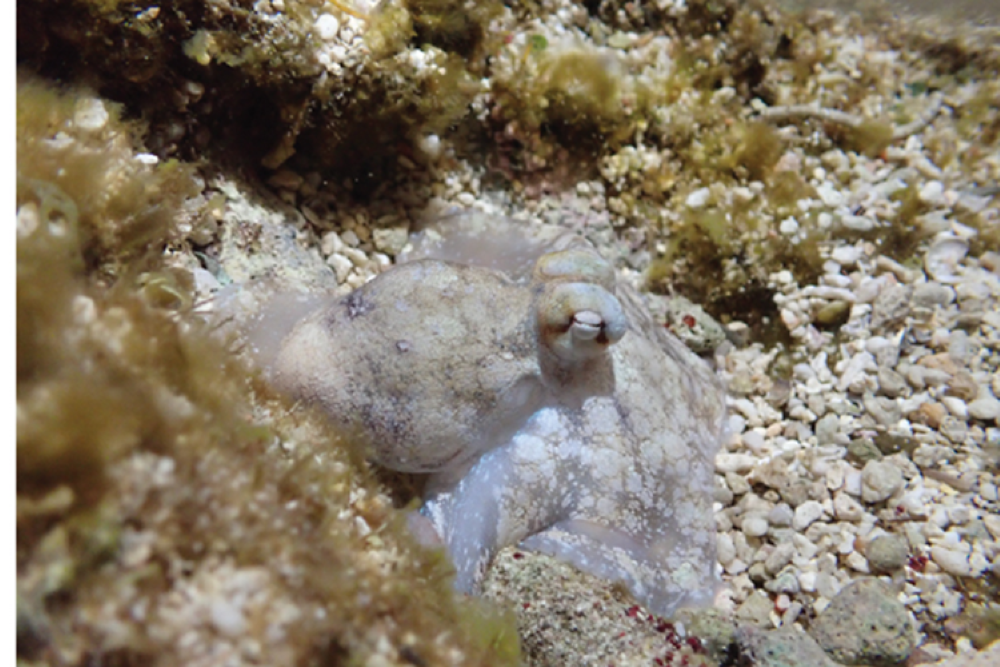Octopuses may be capable of dreaming, study suggests
Researchers suggest their findings pose the question of whether octopuses are capable of dreaming.

Octopus sleep is similar to that of humans – and they may even dream, a new study suggests.
Researchers say the skin patterns the animals create while they are snoozing may indicate they are capable of something similar to dreaming.
Like people, the sea creatures transition between two sleep stages – a quiet stage and an active stage that resembles REM sleep in mammals.
In this sense, while humans can verbally report what kind of dreams they had only once they wake, the octopuses’ skin pattern acts as a visual readout of their brain activity during sleep
While awake, octopuses create a number of different skin patterns which they use to camouflage themselves in different environments, and in social or threat displays, such as warning off predators and communicating with each other.
The animals cycled through these same skin patterns during active sleep, the study found.
It could be that they are practising their skin patterns to improve their waking camouflage behaviour, or simply maintaining the pigment cells, one theory suggests.
However, another is that they could be re-living and learning from their waking experiences, such as hunting or hiding from a predator, and reactivating the skin pattern associated with each experience.
In other words, they could be doing something similar to dreaming.
Senior author, Professor Sam Reiter, who leads the Computational Neuroethology Unit at Okinawa Institute of Science and Technology (OIST), Japan, said: “In this sense, while humans can verbally report what kind of dreams they had only once they wake, the octopuses’ skin pattern acts as a visual readout of their brain activity during sleep.”
He added: “All animals seem to show some form of sleep, even simple animals like jellyfish and fruit flies.
“But for a long time, only vertebrates were known to cycle between two different sleep stages.”
When octopuses sleep, their quiet periods of slumber are punctuated by short bursts of frenzied activity.
Their arms and eyes twitch, their breathing rate quickens, and their skin flashes with vibrant colours.
Researchers from OIST and the University of Washington, examined the brain activity and skin patterning in octopuses (Octopus laqueus) during this active period of sleep.
They found they closely resemble brain activity and skin patterning behaviour seen when awake.
Wake-like activity also occurs during rapid eye movement (REM) sleep in mammals – the phase in which most dreams occur.
The scientists started by checking whether the octopuses were truly asleep during this active period.
They tested how the octopuses responded to a physical stimulus and found that when in both the quiet and active stage of sleep, the animals required stronger stimulation before reacting, compared to when they were awake.
If the octopuses were prevented from sleeping, or were disrupted during the active phase of sleep, they later entered active sleep sooner and more frequently.
Aditi Pophale, co-first author of the study and PhD student at OIST, said: “This compensatory behaviour nails down the active stage as being an essential stage of sleep that is needed for octopuses to properly function.”
According to the study, published in Nature, roughly once an hour, the octopuses entered an active sleep phase for around a minute.
During this stage, their brain activity very closely resembled their brain activity while awake, just like REM sleep does in humans.
Bookmark popover
Removed from bookmarks